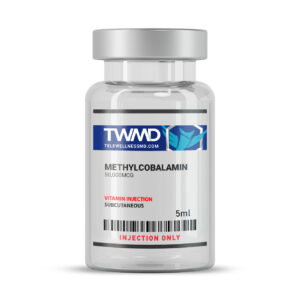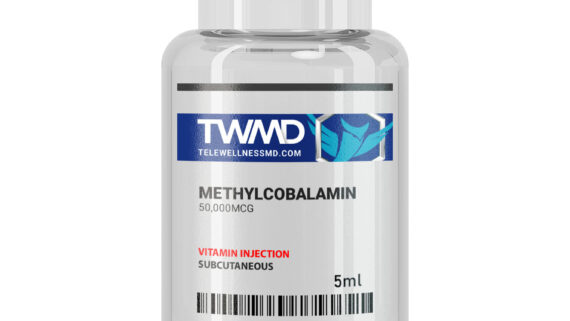What Does Vitamin B12 Do?
Vitamin B12, known scientifically as cobalamin, is an essential, water-soluble nutrient that is part of a larger complex of eight B vitamins.
A general explanation of what vitamin B12 does is help regulate the nervous system and create blood cells. Because of its important duties, even a slight deficiency cause cognitive decline such as memory lapses.
If you are wondering what does vitamin B12 do exactly, then wonder no more.
Visit Official Website: TeleWellnessmd
Functions of B12
As mentioned above, It plays a vital role in maintaining the nervous system. This includes the functioning of the brain. Without sufficient amounts of B12, the brain will function at a less-than-optimal level. For this reason, many people take B12 supplements to stay alert and focused.
It actively contributes to the circulatory system by acting as a critical element for new blood cell formation. It fuels the metabolic processes of every human cell, including DNA synthesis. Even amino and fatty acids rely on vitamin B12 for proper absorption.
Since It plays many roles, including increasing metabolism, more and more people are including lipotropic B12 injections as part of a healthy weight loss plan. Lipotropic injections contain amino acids in addition to It. When combined these elements greatly stimulate the metabolism which is a boon to weight loss efforts. Weight loss and better concentration are just a few benefits of B12 shots.
Absorption of B12
Absorption of It in the body is a complicated process. For the body to take in and make use of incoming vitamin B12, the stomach, pancreas, and bowels must be in good working order.
Your intrinsic factor (a measure of glycoproteins in your stomach) must also be sufficient to bind to incoming It molecules to allow for absorption in the lower intestine later on.
It has a relatively low absorption rate when it is passed through the intestinal tract.
In the average adult, the recommended limit per dose of It is 1.5 micrograms (µg). However, different people absorb B12 differently so it may take 5 or 50 micrograms of vitamin B12 administered orally to have the same effect.
B12 Storage
Adult bodies actively stockpile It for long-term use, despite it being water-soluble. We typically store 2-5 micrograms, with half residing in the liver.
The liver releases a tiny amount, about 0.1% daily, into the intestines for excretion. Any excess B12 that exceeds storage capacity gets flushed out through urine, making overdose highly unlikely.
This efficient storage system allows us to build reserves lasting several years. However, deficiencies can still arise, especially in vegetarians, infants, and the elderly.
Sources of B12
Vitamin B12 is naturally created by bacteria that reside in or on living beings. Most animal-derived products are rich in It, so people who eat a diet rich in animal products (especially eggs, liver, and fish) likely do not need to worry about their It levels.
However some people, particularly those who have absorption issues or choose to abstain from eating animal products, must consider alternate sources of It.
Another population that benefits from it injections is weight loss hopefuls. It helps aid weight loss efforts in a variety of ways.
Our online store has a wide variety of B12 injections for sale. We sell supplements individually or as a combo with other nutrients.
What It does for the body is beyond useful; it is a necessity. If you are not sure if you are getting enough vitamin B12 from food alone or if you want to supplement a balanced diet, consider our vitamin B12 injections.


